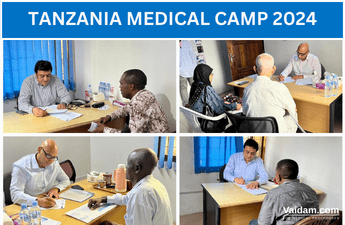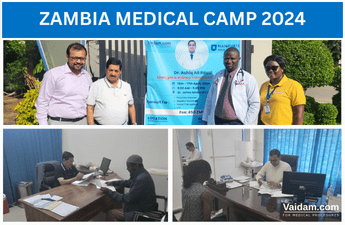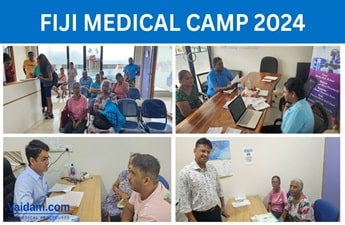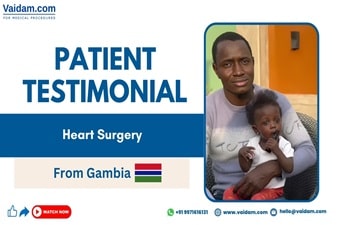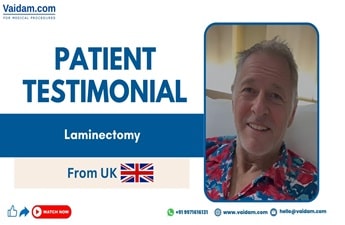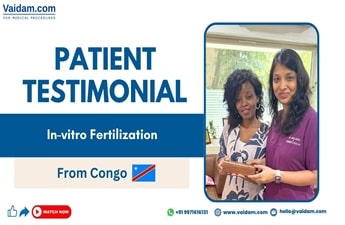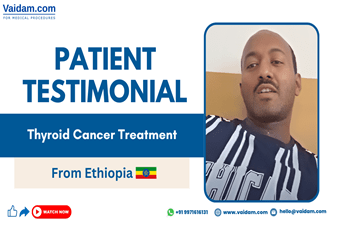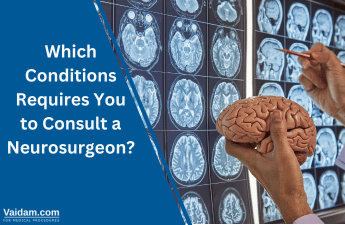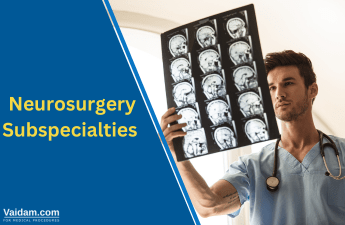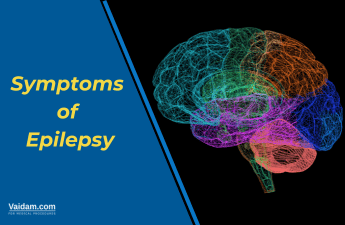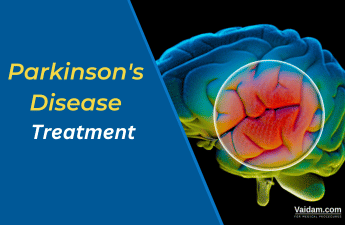
Autism spectrum disorder (ASD), commonly known as Autism, is a complex and often misunderstood neurological condition. It is a developmental and neurological disorder affecting communication, learning, behavior, and interaction. It is described as a "developmental disorder" as the symptoms generally appear in the first two years of life.
About 1 in 100 children have autism. A rapid rise in the prevalence of autism has been reported in recent years, with boys getting affected 4-5 times more than girls. The prevalence of autism in Europe, Asia, and North America is estimated at 1%.
The cost of treatment of autism in India ranges from USD 3500 to USD 4500, while the cost may range from USD 4800 to USD 20000 in Turkey.
Get in Touch with Medical Experts
What are the Signs and Symptoms of Autism?
Autism may present many signs and symptoms, ranging from mild to moderate to severe. There are three major categories of signs and symptoms:
- Abnormalities in social interaction - Social communication problems may decrease their relationships' quality and can lead to social avoidance when severely affected. These abnormalities include:
- Poor eye contact during interactions
- A narrow range of facial expressions
- Difficulty establishing relationships with peers
- Abnormalities in communication - Communication problems include:
- Poor conversation skills
- Delayed or lack of spoken language
- Lack of appropriate developmental play
- Diminished gestures
- Abnormalities in behaviors, interests, and activities, which are usually restricted and repetitive - Repetitive behavior problems include stereotyped motor mannerisms, such as:
- Hand flapping
- Restricted interests
- Inflexible adherence to routines
- A preoccupation with parts of objects
Approximately 70% of children with autism display abnormal eating behaviors, including extreme sensitivity to food textures and narrow food preferences. Affected children may favor foods of a particular color or select only grains. These behaviors may be apparent as early as one year of age.
Watch the video below to learn about the successful treatment journey of Mohammed Jariyat Hasan's son, who visited India from Bangladesh. The child was suffering from hyperactivity and needed neurological assistance for autism.
What are the Possible Causes of Autism?
Although the causes of autism remain unclear, it appears that environmental and genetic factors contribute to the disorder.
Other possible causes of autism include the following:
- Being exposed to environmental toxins before or after birth
- Problems during delivery
- Severe infections such as meningitis or encephalitis resulting in brain damage
- Infections before birth
What are the Risk Factors for Autism?
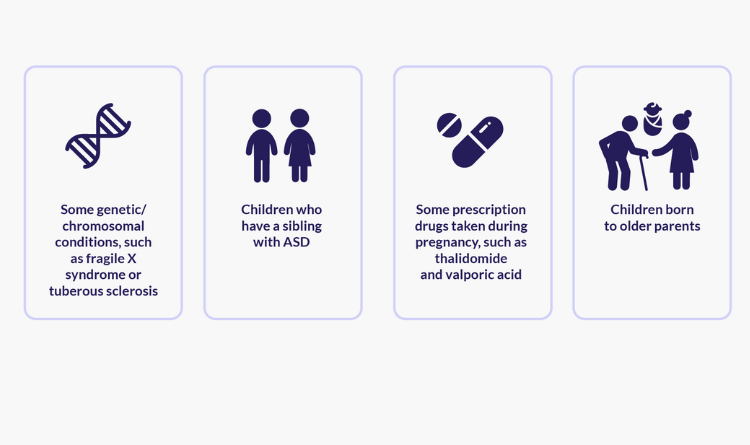
Autism affects individuals belonging to all ethnic, racial, and socioeconomic groups. Certain gene disorders in families can raise a child's risk for autism.
These gene disorders may include the following:
- Phenylketonuria (PKU)
- Fragile-X
- Neurofibromatosis
- Tuberous sclerosis
How is Autism Diagnosed in a Child?
Since no single medical test can diagnose autism, healthcare providers use a set of guidelines to diagnose autism in children before they are age 2. These guidelines mention that all children should be screened for autism and other developmental disorders before age 2. The screening is done at well-child checkups. Children with developmental or behavior disorder symptoms require more diagnostic tests for autism.
Healthcare providers look for the following issues during the child visits before age 2:
- No babbling, gesturing, or pointing by age 12 months
- No single word spoken by the age of 16 months
- No eye contact between the ages of 3 to 4 months
- No two-word phrases by 24 months or just repeating words or sounds of others
- Loss of language or social skills at any age
If your child has any of the above problems, they may need other screening tests such as:
- Nervous system exam
- Imaging tests such as MRI, CT scan, or PET scan
- Mental health tests
- Genetic tests
What are the Treatment and Intervention Services Available for Autism ?
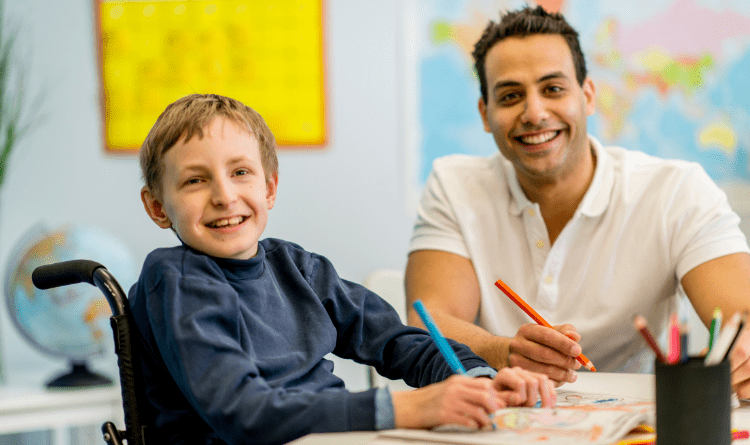
Current treatments for autism aim to alleviate symptoms that hinder daily functioning and quality of life. Treatment plans typically involve a team of professionals and are tailored to the individual.
There are many types of treatments available that can be categorized into the following:
Behavioral Approaches
These approaches focus on changing behaviors by understanding what happens before and after that behavior. These approaches have been widely accepted in many schools, treatment clinics, and also among educators and healthcare professionals.
A notable behavioral treatment for people with autism discourages undesired behaviors and encourages desired behaviors to improve various skills by measuring and tracking progress.
Developmental Approaches
These approaches are often combined with behavioral approaches to improve specific developmental skills, such as language or physical abilities, and a broader range of interconnected developmental abilities.
- Speech and Language Therapy, the most common developmental therapy, helps improve the person's understanding and use of speech and language. Some people with autism communicate verbally. Others may communicate through signs, pictures, gestures, or an electronic communication device.
- Occupational Therapy helps people achieve independence through eating, bathing, dressing, and socializing. Occupational therapy may include:
- Physical Therapy - Helps improve physical skills, such as larger movements of the trunk and body and fine movements of the fingers.
- Sensory Integration Therapy - Helps improve responses to sensory input that may be overwhelming or restrictive.
Educational Approaches
These approaches are based on the idea that people with autism thrive on visual learning and consistency. Educational approaches allow teachers to adjust the classroom structure and improve academic and other outcomes. For example, daily routines can be written, drawn, and placed in clear sight.
Boundaries can be set around learning stations. Verbal instructions can be complemented with visual instructions or physical demonstrations.
Social-Relational Approaches
Social-relational treatments focus on building emotional bonds and improving social skills. Social relational approaches:
- Encourages therapists and parents to follow the interests of the individual and to expand opportunities for communication
- Involves activities that increase motivation, interest, and ability to participate in shared social interactions
- Provide simple descriptions of what to expect in a social situation
- Provide opportunities for people with autism to practice social skills in a structured environment
Pharmacological Approaches
No medications are available to treat the core symptoms of autism. Some medicines treat co-occurring symptoms that can help people with autism function better. Medications help manage:
- High energy levels
- Inability to focus
- Self-harming behavior, such as hand biting or head banging
- Co-occurring psychological conditions such as depression or anxiety
- Medical conditions such as sleep problems, seizures, or stomach or other gastrointestinal problems
The use of antipsychotic drugs, such as risperidone and aripiprazole, has been approved by the Food and Drug Administration (FDA).
Families and physicians should collaborate to monitor medication's progress and potential negative side effects, ensuring that the benefits outweigh any drawbacks.
Psychological Approaches
These approaches can help individuals with autism manage mental health issues such as depression and anxiety. These approaches focus on learning the connections between thoughts, feelings, and behaviors. A therapist and the individual with autism work together to identify goals and change how the person thinks about a situation to change how they react.
Complementary and Alternative Treatments
Some patients and their families may use complementary and alternative treatment approaches, including:
- Special diets
- Herbal supplements
- Chiropractic care
- Animal therapy
- Art therapy
- Mindfulness
- Relaxation therapies
Talk to your child's healthcare provider before starting a complementary and alternative treatment.
How can you help your Child Live with Autism?
Being a lifelong condition, autism can stress the person with autism and their family. Your child's primary care provider will help you understand the treatment and advise you on how to care for your child. You certainly play a critical part in your child's treatment and well-being.
Here are a few things you can do to help your child:
- Visit all appointments with your child's healthcare provider.
- Talk with your child's healthcare provider about others included in the care, such as Neurologists, Occupational and Physical therapists, Social workers, Speech-language pathologists, Psychologists, and Psychiatrists.
- Create a treatment plan with your child's healthcare provider and schools.
- Have your child wear a medical alert necklace or bracelet if they wander or have communication problems.
- Consider having your child carry an emergency form with contact information and communication symbols.
- As autism can be stressful, seek support from local community services.
- Be in touch with other parents who have a child with autism.
- Watch for signs of stress in you or your family members, as caregiving's physical and emotional demands can be overwhelming.
Key Takeaway
Autism is not simply a diagnosis; it represents a diverse and vibrant spectrum of individuals who contribute to our world in countless ways. By embracing neurodiversity and promoting understanding and acceptance, we can create a society where individuals with autism are valued for their unique abilities and perspectives.
We can work together to break down barriers, provide support, and celebrate the strengths of those with autism. Together, we can build a more inclusive and compassionate world where everyone can reach their full potential, regardless of where they fall on the spectrum.



